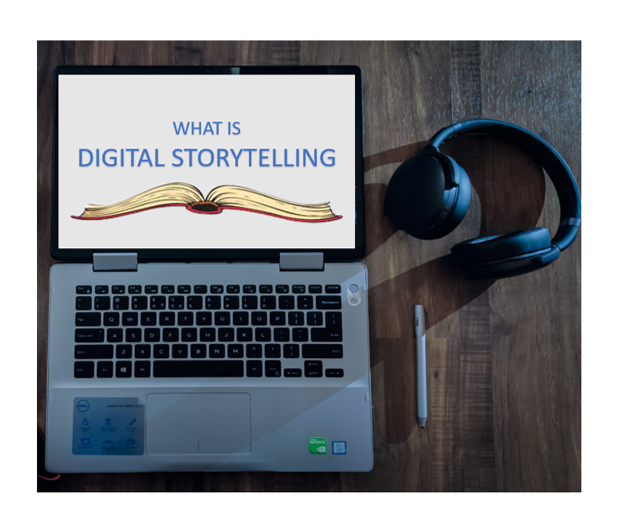Digital (Short) Stories
As literary texts, stories are great resources for English teachers to use; they provide learners with authentic or semi-authentic target language input and help present new words or structures in meaningful contexts. Bringing fun and joy to the learning process, stories increase learners’ willingness to learn. The ever-evolving technology has shaped the way language teachers use stories in class, and now it is possible to see digital (short) stories for use. In this regard, a digital story could be defined as a literary text that is converted by a digital tool into a colorful, enjoyable, and appealing language teaching source. Digital stories are beneficial to develop learners’ language skills, especially skills of reading, writing, and listening (Çetin-Köroğlu, 2019). It is also known that digital stories could be helpful for oral proficiency development and motivating students in language classrooms (Tahriri, Tous, & MovahedFar, 2015). Thanks to digital stories, teachers can also help learners develop cultural awareness and understanding, and they can appeal to learners with different learning preferences (Çetin-Köroğlu, 2016).
The themes of digital stories may be related to animals, nature, people and their experiences, important historical events, culture, love, crime, and so forth. Their length may change from one account to another, and they could be as short as a couple of minutes. Digital stories may be readily available for use as podcasts, or learners may create their own digital stories by utilizing digital tools. As Çetin-Köroğlu (2019) explains, via the internet, online libraries, numerous websites, and apps, language teachers can access a wide variety of digital short stories. Alternatively, teachers can read short stories aloud, record their voices using voice recording apps, and then embellish their multimedia short stories with images, photographs, and comprehension questions. To be able to do all these, language teachers do not need to be experts. One possible challenge for teachers, however, could be selecting among different themes. A small-scale needs analysis at this point might just “do the trick” for teachers to decide on possible topics.
In addition to all the aforementioned benefits, digital stories are helpful to foster learner autonomy. They “can be easily shared and learned beyond the class – they can be stored in a repository that future students can use for their learning” (Enokida, 2016, p.132). When used especially for extensive practices, digital stories may help students take responsibility for their progress. Smartphones, in this respect, could be of great help to teachers and learners. Through their smartphones, learners might dig into their mobile stores and find free and practical applications to download. Similarly, as Enokida (2016) suggests, learners might write their own stories, record their voices, and prepare video clips with visual images and sounds through their smartphones. Nevertheless, it is worth noting that “although the current generation has been provided with an abundance of technology possibilities, educators cannot assume students to be digital natives and must provide training as they would with other non-technological activities” (White, 2019, p. 406). Likewise, “language teachers should be trained on how to use and integrate literary texts into their teaching materials through in-service training. If the benefits and gains of using literary texts are explained enough, they will eventually use them” (Çetin-Köroğlu, 2016, p.79).
References
Çetin-Köroğlu, Z. (2020). Effects of Digital Short Stories on the Development of Listening Skills: An Action Research. GIST Education and Learning Research Journal, 20, 65-84.
Enokida, K. (2016). Digital story (re) telling using graded readers and smartphones. CALL Communities and Culture–Short Papers from EUROCALL 2016, 132-136.
Tahriri, A., Tous, M. D., & MovahedFar, S. (2015). The impact of digital storytelling on EFL learners’ oracy skills and motivation. International Journal of Applied Linguistics and English Literature, 4(3), 144-153.
White, J. (2019). Digital stories: improving the process using smartphone technology. CALL and complexity, 402.
